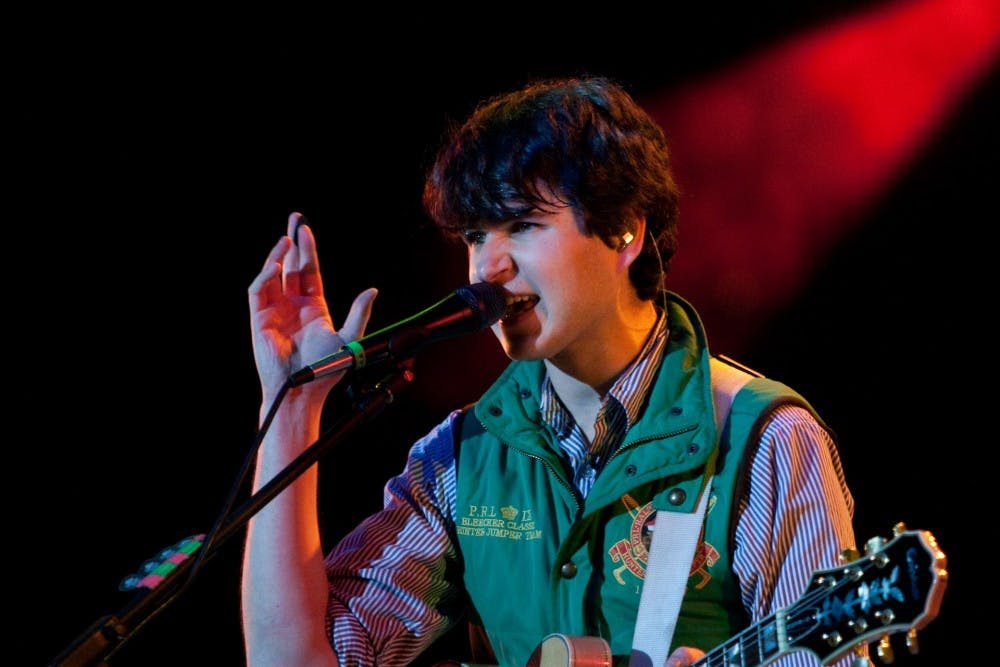Japanese animation is not particularly new to the American television canon. Exports have brought their talents to American networks since the 1960s and shows like Pokemon and Dragonball Z are of particular importance to many millennials.
Anime — as the genre is commonly known, although iconic directors like Hayao Miyazaki have criticized the designation — has also influenced American cartoons, shaping the figural representations of characters in shows like Avatar: The Last Airbender and Teen Titans.
Those shows that American audiences identify as being anime are often grouped according to some shared, but not universal, traits. Certain stylistic techniques and plot themes have become ubiquitous in an idealized version of an extremely broad category.
Thus people like me who know little to nothing about anime tend to have a certain image in mind when thinking about the “genre.” It is in these stereotypes that Netflix’s new series Neo Yokio finds its aesthetic.
Neo Yokio is a weird show. Ostensibly an anime, its stars are largely American and individually famous on their own. Jaden Smith voices the protagonist Kaz Kaan, who is a rich socialite-slash-exorcist in a stylized, futuristic version of New York City called “Neo Yokio.” Get it? Do you?
Smith is backed up by an impressive cast; The series features Jude Law, Steve Buscemi, Desus Nice and the Kid Mero — the brand is strong — Amandla Stenberg, Susan Sarandon, Jason Schwartzman and Stephen Fry. That’s pretty damn impressive just in terms of star power.
Additionally the show was created and written by Vampire Weekend frontman Ezra Koenig and, in one episode, features music by Dev Hynes, known to most pop-minded hipsters as Blood Orange.
The story is centered around Kaz, who has recently been dumped by his girlfriend and as a result, spends most of his time making nihilistic statements, like calling squid ink pasta, “the most melancholy pasta.”
Kaz, his friends and his enemies are all members of a stylized New York City super-elite: lots of tuxedos, knit sweaters and private-school type sporting events. On the side, Kaz is an exorcist, a designation which sets him apart from the “old money f**kboys” like his nemesis Arcangelo Corelli, voiced by Jason Schwartzman.
In terms of animation, the show was lauded by The Verge for featuring talented storyboard artists like Kazuhiro Furuhashi and Junji Nishimura. Production I.G., which animated the critically acclaimed film Ghost in the Shell, is one of the show’s producers, along with Studio Deen and MOI. Basically the stars were aligned, and the show seemed like it could be great.
Reality, however, is a cruel, cruel mistress. What attracted me to this show was Desus & Mero, of whom I have been a fan since way back when they still had the Desus vs. Mero podcast and internet show.
As was mentioned before, Neo Yokio plays on a lot of American stereotypes about anime: There are large robots, demons, fragmented dialogue and overt physical representations of emotion.
It’s certainly possible that the series contains references oriented towards more well-versed anime fans, but some of the tropes came off as a bit facile.
Beyond that the humor seems to be based in internet culture, which tends to be dry and deadpan, almost anti-humor. This is not a bad thing, since the show is presumably aimed at young people, most of whom arguably think memes are hilarious. Nonetheless Neo Yokio could definitely be funnier, particularly considering the cast.
The format itself is an interesting choice. There is certainly precedent for anime centered around black characters — Afro Samurai and The Boondocks being two of the more prominent.
That said, the genre has had some less than favorable depictions of black characters built around physical stereotypes, so its refreshing to see a series built around black characters.
On this subject, the show’s parody of wealth is somewhat accentuated by the casting of Desus and Mero as two wealthy Neo Yokians, Lexy and Gottlieb, due to the fact that the pair rose to fame in part due to their alternative perspectives of New York City.
A significant part of their comedy is a direct challenge to popular ideas about the city — wealth, celebrity, pretension and so on — so their roles in Neo Yokio seem to be a send-up. It is a subversion of a toxic culture of wealth by two people who have made their careers emphasizing that the slippery, pole climbing scene is not them.
Smith’s Kaz Kaan, as well as Tavi Gevinson’s Helena St. Tessero, are more hyperbolic parodies, playing upon stereotypes about the urban rich and pushing them to nearly impossible limits of ridiculousness.
I’m still a bit conflicted about this show. On the one hand there are a huge amount of valid criticisms, including a very decisive comment about transphobia in the show made by The Mary Sue, a website which approaches “geek” culture from feminist perspectives. On the other, I really like the actors, artists and creator behind this show.
Individually they are incredibly funny and talented people who have the potential to create something great. Neo Yokio is not quite there yet, but the short six episode series is hopefully more of an introduction than anything else.

















